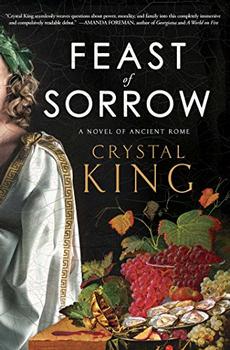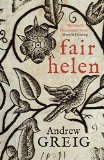Summary | Excerpt | Reviews | Beyond the book | Read-Alikes | Genres & Themes | Author Bio

A Novel
by Paul Kingsnorth"A work that is as disturbing as it is empathetic, as beautiful as it is riveting." - Eimear McBride, New Statesman
In the aftermath of the Norman Invasion of 1066, William the Conqueror was uncompromising and brutal. English society was broken apart, its systems turned on their head. What is little known is that a fractured network of guerrilla fighters took up arms against the French occupiers.
In The Wake, a postapocalyptic novel set a thousand years in the past, Paul Kingsnorth brings this dire scenario back to us through the eyes of the unforgettable Buccmaster, a proud landowner bearing witness to the end of his world. Accompanied by a band of like-minded men, Buccmaster is determined to seek revenge on the invaders. But as the men travel across the scorched English landscape, Buccmaster becomes increasingly unhinged by the immensity of his loss, and their path forward becomes increasingly unclear.
Written in what the author describes as "a shadow tongue"--a version of Old English updated so as to be understandable to the modern reader--The Wake renders the inner life of an Anglo-Saxon man with an accuracy and immediacy rare in historical fiction. To enter Buccmaster's world is to feel powerfully the sheer strangeness of the past. A tale of lost gods and haunted visions, The Wake is both a sensational, gripping story and a major literary achievement.
The Wake's patter brings us closer to the world of buccmaster and his contemporaries as they try to get their minds around the cataclysm of violent social upheaval and foreign domination. The odd spelling, the homophonic inversions, and the archaic vocabulary do take a wee bit of getting used to, but once the reader's eye and ear are acclimated to the language, one's mind is free to engage with the story, which is beautiful and dark.
The Wake is a splendid book, a sort of mash-up between Grimm's fairy tales and James Joyce's Finnegans Wake (which it self-consciously calls to mind through its fractured phoneticism). History may be written by the winners, but this book makes a hero of history's grim casualties, celebrating the valor of the long-vanquished in a language that has morphed from extinct to distinct...continued
Full Review
 (1040 words)
(1040 words)
(Reviewed by James Broderick).
The phrase "Old English" might seem like a quaint way to refer to any works in English that we now consider "old" – Milton, Shakespeare, Chaucer, et al. But in fact Old English – the language whose rhythms and vocabulary inspired Paul Kingsnorth's novel The Wake – would be unrecognizable by readers and speakers of the contemporary language.
Broadly speaking, Old English is the term used to describe the language and dialects of England in the period after the fall of the Roman Empire and before the Norman Conquest. Around the fifth century A.D., after the Roman Empire had collapsed, people from other parts of Europe migrated to Britain. According to early records, they were predominantly Germanic tribes from the Saxony ...

If you liked The Wake, try these:

by Crystal King
Published 2018
Set amongst the scandal, wealth, and upstairs-downstairs politics of a Roman family, Crystal King's seminal debut features the man who inspired the world's oldest cookbook and the ambition that led to his destruction.

by Andrew Greig
Published 2016
Elderly narrator Harry Langton looks back on the adventures and friends of his youth, transporting the reader to the Scottish Borderlands at the end of the 16th century...